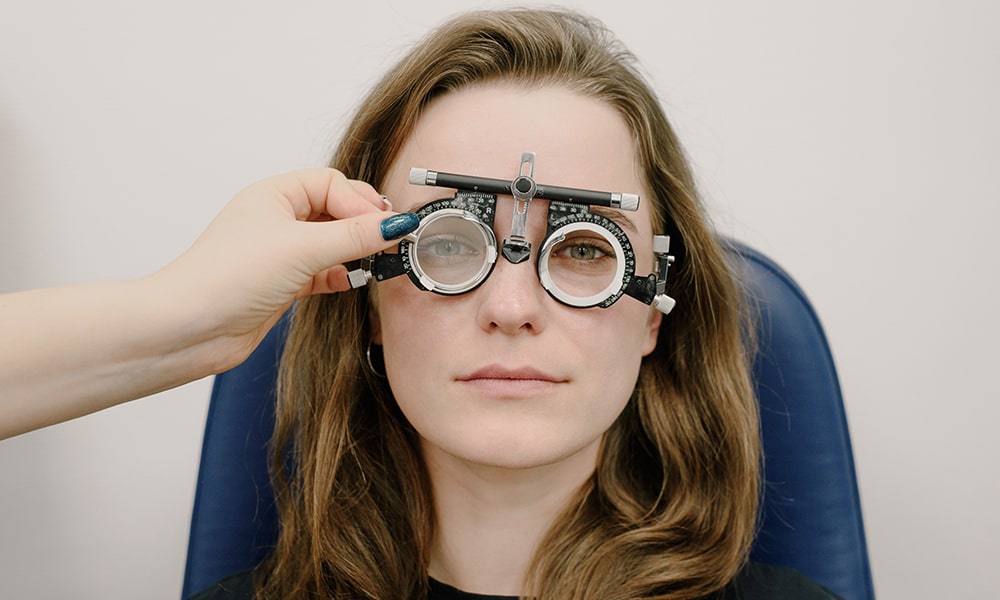Should I Get Eyeglasses If Only One Eye Has Blurred Vision?
There is a high risk of blurry vision in the one eye. This usually indicates a refractive error, such as astigmatism, hyperopia, myopia, or presbyopia in one eye. Blurry vision in one eye may also be indicative of a potentially sight-threatening eye disorder or neurological condition.
You may want to consider receiving an eye examination from your Optician if you are experiencing blurred vision in one eye in order to determine if you have a refractive error such as myopia (nearsightedness) or hyperopia (farsightedness), or if there is something more serious going on.
You will need to undergo specific treatment if your poor vision in one eye is due to an eye disease. If the poor vision in one eye is the result of a refractive error, an Optician will prescribe prescription lenses suitable for each eye.
Common Causes of Blurred Vision in One or Both Eyes
Myopia
In terms of refractive errors, myopia (nearsightedness) is the most common refractive error, characterized by squinting, strained eyes, headaches, and blurry vision when trying to view distant objects.
Hyperopia
The condition of hyperopia (farsightedness) results in blurred images of near objects like mobile phones, computer screens, and books, resulting in eye fatigue and strain.
Astigmatism
The condition of astigmatism results in blurry vision at all distances.
Presbyopia
There is a condition known as Presbyopia which occurs in people over the age of 40 and results in blurred near vision and eye strain when reading.
Other Causes of Blurred Vision
Dry eyes
Symptoms of dry eye syndrome include blurred vision and itchy eyes. If you are experiencing these symptoms, contact your doctor for treatment.
Pregnancy
It is common for pregnant women to experience vision changes such as dry eyes, headaches, migraines, light sensitivity, and blurred vision due to hormonal changes that at times alter and shape the corneal thickness. The blurred vision you are experiencing may be a sign of gestational diabetes or high blood pressure.
Migraines
Migraines can be characterized by blurred vision, halos, and flickering light, regardless of whether they are ocular migraines or another type of migraine headache.
Eye floaters
It is possible to have floaters drifting in your visual field which can cause blurry vision. If you notice sudden onset of floaters, consult your Doctor immediately, as this could indicate that your retina has torn or detached.
LASIK surgery
The vision should stabilize within a few days following refractive surgery, although some people experience blurry or hazy vision following the procedure.
Blurred Vision Can Indicate Severe Eye Disease
A macular hole in the retina may cause sudden onset of blurred vision in people over the age of 60. In addition to ocular herpes, optic neuritis (inflammation of the optic nerves), cataracts, diabetic retinopathy, macular degeneration, and glaucoma, blurred vision can also indicate these conditions.
In contrast, mild blurred vision that comes and goes may be a sign of tiredness, eye strain, or excessive sun exposure.
What Type of Glasses Does One Wear When One Eye Has Poor Vision?
You will not be prescribed a monocle if you only need glasses for one eye. Eye doctors commonly prescribe specs with different prescription lenses. The type of glasses you will receive depends entirely upon your specific needs. As a result, if you suffer from refractive errors in one eye, one lens will correct that eye, whereas the other lens will correct the other eye.
















